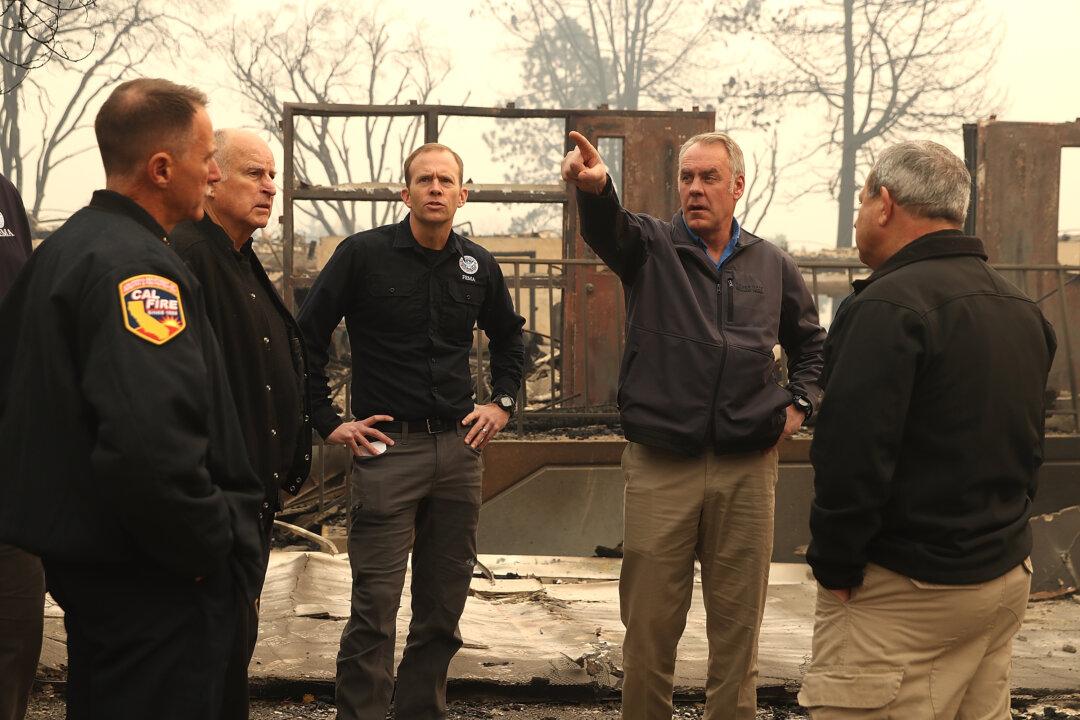Top Trump administration officials are urging Congress to provide them with broader federal authority as part of the Farm Bill to conduct active forest management to help prevent the deadly infernos like those that have devastated parts of California over the past several years.
U.S. Agriculture Secretary Sonny Perdue said in a National Public Radio interview on Nov. 21 that the federal government has been “litigated into paralysis about being able to do the common-sense [forestry] thinning and underbrush cleaning that needs to happen.”




